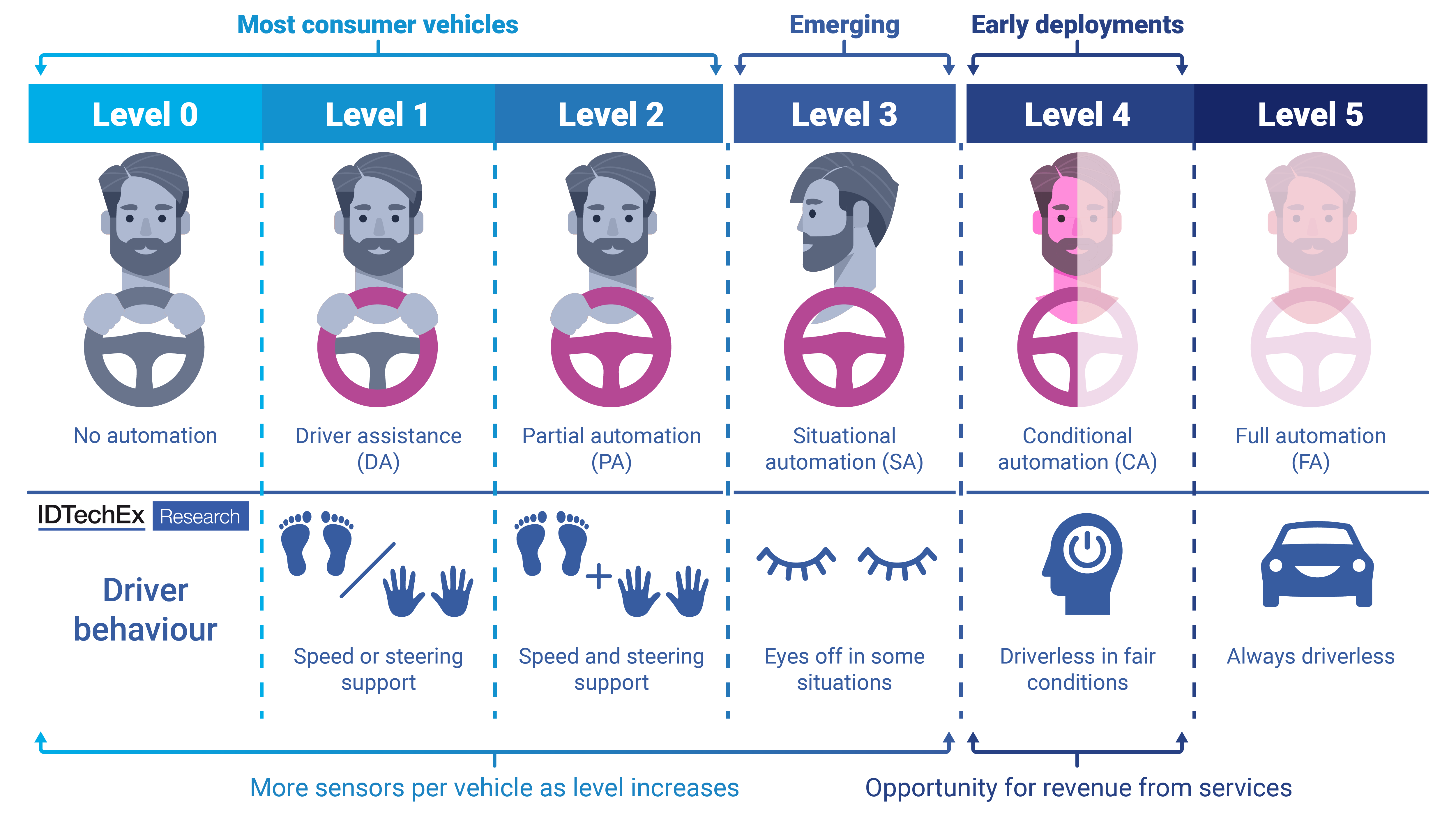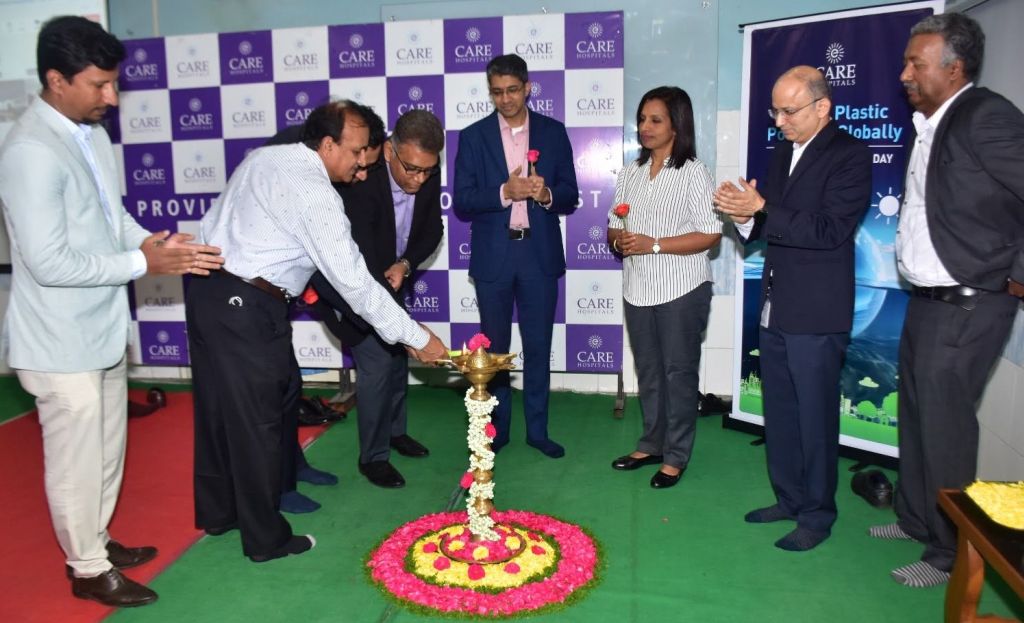New Vehicle Tech Will Be Worth US$1.6 Trillion by 2034, Says IDTechEx

|
Author: Dr James Jeffs, Senior Technology Analyst at IDTechEx Autonomous driving, electric vehicles, connected and software-defined vehicles, and in-cabin monitoring are all megatrends reshaping the automotive industry. Together, these technologies combine to form a US$1.6 trillion opportunity by 2034, nearly a 10-fold increase compared to 2023. The new report from IDTechEx, “Future Automotive Technologies 2024-2034: Applications, Megatrends, Forecasts”, brings together a portfolio of IDTechEx’s research into a single summary of the biggest changes and opportunities coming to the automotive industry. Much of this potential market revenue will be coming from components required for electrification and automation, but the report predicts that services offered by autonomous and connected vehicles have the most room for growth.
|
||
 |
||
|
Autonomous driving brings hardware and service revenue opportunities. Source: IDTechEx |
||
|
Service revenue from autonomous cars, connected cars and software-defined cars Autonomous cars are still in the early days, with commercial testing starting to scale in the US and China, but recent events involving Cruise show that the industry still needs to be apprehensive. There is hope though. In December, Waymo announced it had surpassed 7 million driverless miles across San Francisco, Los Angeles and Phoenix. In this time, it claims to have shown that its vehicles are 6.7 times less likely to be involved in an injury-causing accident compared to human drivers. Despite this success, any incident should and will be scrutinized, and it will take time for regulations and public trust to build. But, over a ten-year horizon, there will be significant growth of autonomous mobility-as-a-service (MaaS), with services spreading to hundreds of cities worldwide and generating hundreds of trillions of dollars in revenue. While autonomous cars are still finding their footing, connected vehicles are already a reality in the automotive industry. Over the past few years, IDTechEx has seen OEMs bring in new revenue models based on a feature-as-a-service (FaaS) plan. This allows customers to subscribe to some features of their vehicle, like a heated steering wheel, as they need it. IDTechEx predicts that these models and the features on offer will grow more all-encompassing and complex over the next decade. IDTechEx’s “Future Automotive Technologies 2024-2034: Applications, Megatrends, Forecasts” report shows that the annual revenue generated through connected and software-defined vehicles will exceed US$700 billion. With both autonomous mobility services and connected vehicle services being in their infancy today but growing into hundred-billion-dollar industries in ten years’ time, it is no wonder the automotive industry is so excited about them. IDTechEx finds that revenue generated through future automotive technology services will grow at a CAGR of 44.4% between 2023 and 2033. Components needed for future automotive technologies Electrification, automation, and in-cabin sensing are all creating new component markets and huge revenue opportunities for the automotive industry. In electric vehicles, the motor, battery, and power electronics form a growing market that can expect to see a CAGR of 9.8% between 2023 and 2033. While this is the largest of the component markets, it is not the fastest growing. The modern transition to electric powertrains has been happening since the late 00s, and while technologies like adaptive cruise control have been around longer, it’s only in the last five to ten years that the industry has seen a new push for high levels of automation. Most new vehicles already have a small array of sensors, but new SAE level 3 and above technologies require many sensors per vehicle. In addition to external sensors for environmental sensing, there is an even newer push for internal sensors for occupant and driver monitoring. These technologies will be crucial for keeping road users safe when autonomous systems need to hand off to the driver and be sure they are alert. “Future Automotive Technologies 2024-2034: Applications, Megatrends, Forecasts” finds that the ADAS and automated vehicle sensors market will grow at a CAGR of 13.7% between 2023 and 2033 and sensors for in-cabin monitoring will grow at a CAGR of 14.7% over the same period. The automotive industry is changing rapidly, with new opportunities and revenue streams evolving. IDTechEx’s new report, “Future Automotive Technologies 2024-2034: Applications, Megatrends, Forecasts”, can help navigate these changes and prosper. To find out more about this new IDTechEx report, including downloadable sample pages, please visit www.IDTechEx.com/FutureAutoTech. Free-to-attend upcoming webinar The Four Future Automotive Technology Opportunities Dr James Jeffs, Senior Technology Analyst at IDTechEx and author of this article, will be presenting a free-to-attend webinar on the topic on Tuesday 30 January 2024 – The Four Future Automotive Technology Opportunities. The webinar will include:
To find out more and register your place on one of our three sessions, please click here. If you are unable to make the date, please register anyway to receive the links to the on-demand recording (available for a limited time) and webinar slides as soon as they are available. About IDTechEx IDTechEx guides your strategic business decisions through its Research, Subscription and Consultancy products, helping you profit from emerging technologies. For more information, contact research@IDTechEx.com or visit www.IDTechEx.com. |



